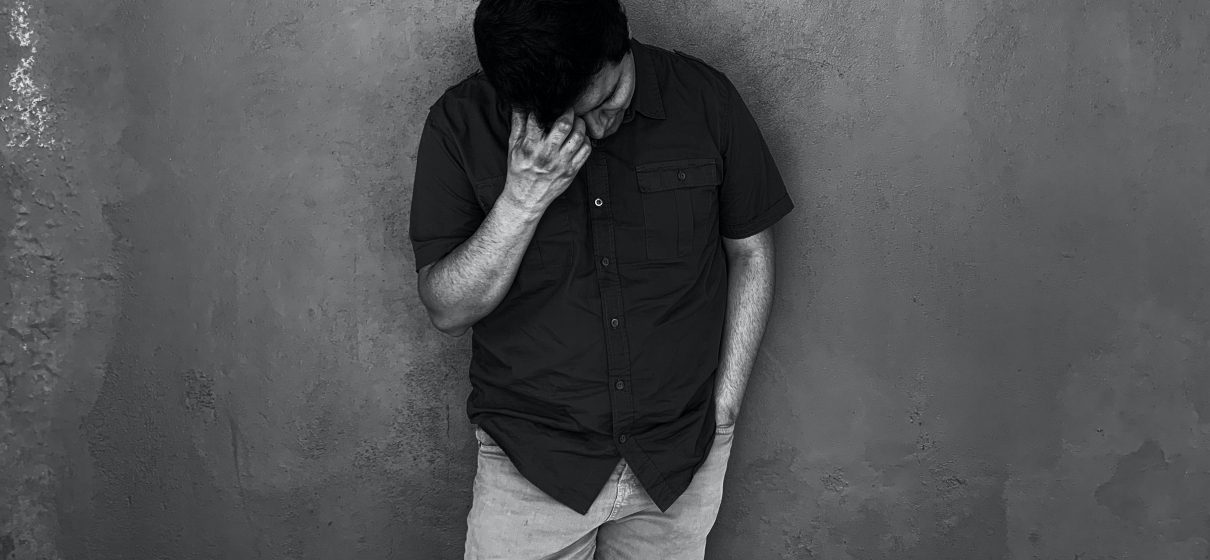A Study of Obadiah: The Just Love of God
In the summer 2020 message series “For the Love,” the Clear Creek Community Church Teaching Team will examine one of the least known sections of the Bible, the books known as the Minor Prophets, to better understand the great love of God and our faithful response to that love. Join with us in reading each book along the way! Each Sunday afternoon we will post an introductory video by The Bible Project and a 5-day reading plan with reflection questions to prepare you to hear the following Sunday’s message.
**With our study of the book of Obadiah, we move back in time to the days of the conquest of Judah. Obadiah preaches not to the people of God, but to Edom, a nation bordering Judah to the south. This book is not only the shortest in the Old Testament — those numbers to read each day are verses, not chapters — but also one of the least popular to read.
DAY 1—Read Obadiah 1-4
Obadiah addresses two different audiences in these verses, which we can identify based on the pronouns used. Who is us in verse 1? Who is her? Then in verses 2-4, Obadiah is addressing someone else: Who are I and you in this passage?
Obadiah’s original readers would have been familiar with Edom’s history, especially their interactions with the nation of Israel, with significant roots extending all the way back to the beginning of the Bible. Read Genesis 25:19-34. Who were Jacob and Esau? When Jacob had grown, God changed his name to Israel, and his twelve sons fathered the tribes that later formed that nation. What was Esau called (v. 30) that later became the name of his descendants’ country? What did the Lord predict would be the relationship between these two nations (v. 23)?
APPLY—How does the prophecy about Rebekah’s sons in Genesis 25 compare to Obadiah’s prophecy in v. 4? Have you ever been tempted to seek a greater glory for yourself than God has promised you? What difference can it make when we approach our tasks and accomplishments to bring glory to God rather than ourselves?
DAY 2—Read Obadiah 5-9
In today’s verses, Obadiah continues to describe the extent of the Lord’s wrath against Edom. What are some of the things and people that this nation will lose in the coming judgment?
Notice that Edom is repeatedly referred to as Esau or Mount Esau in this passage. Let’s read Genesis 27:1-28:5 to get a deeper idea of the roots of their relationship with Israel. How would you describe Jacob’s behavior in this passage? How does Esau respond to Jacob’s actions? What feelings does Esau have for his brother?
APPLY—Just as Jacob took away the blessing to which Esau felt he was entitled, so Obadiah predicts that the Lord will take away Edom’s treasures, wisdom, and might. How do you respond to a loss or lack of worldly success or possessions, especially when you see others who seem to prosper despite lacking integrity? What might it look like to completely trust God with both our abundance and scarcity?
DAY 3—Read Obadiah 10-14
This passage gives us the first clues to the reason that Edom has provoked God’s wrath. In v. 12-14 Obadiah frames his prophecy as a series of commands, but this is a condemnation of their past behavior. How did Edom respond to the destruction of Jerusalem and the exile of the people of Judah? What does this reveal about the attitude of their hearts toward their brothers?
Although Jacob was sent away to escape Esau’s wrath (and find a non-Canaanite wife), he eventually decides to return to his native land. Read Genesis 32:1-21 and 33:1-16 to see Jacob’s first meeting with Esau since his departure. How has Esau’s heart seemingly changed toward Jacob? What do Jacob’s words and behavior reveal about the state of his heart? What has shifted in the relationship between these brothers, and what has stayed the same?
APPLY—Jacob has returned to Canaan with increased wealth, family, and significance. Esau’s response is to rejoice rather than resent his brother’s good fortune. In contrast, the Edomites of Obadiah’s day only rejoiced over Israel’s destruction. How do you respond to the rise or fall of those with whom you have experienced conflict? What does your reaction reveal about your heart?
DAY 4—Read Obadiah 15-18
Obadiah’s prophecy now extends beyond the borders of Edom. What does he prophesy regarding the other nations of the world? How does that contrast with his message for God’s people in this passage?
The fraught relationship between Jacob and Esau continued long after their deaths, as seen in the ongoing interactions between the two nations of their descendants. During the Israelites’ journey from Egypt to the Promised Land, they were forced to take an indirect route due to Edomite resistance (Numbers 20:14-21). After traveling far to the south to avoid Mount Seir, they then travelled through the far edge of Edom’s territory. Read Deuteronomy 2:1-8. In what ways does God affirm the nation of Edom? How does their story resemble that of Israel?
APPLY—In both passages that we read today, we see the Lord’s sovereignty over the rise and fall of both individuals and nations. Read Acts 17:24-31. What is Paul arguing here about God’s sovereignty over the nations and his purposes for us? Just as Obadiah did, Paul connects sovereignty with coming judgment. What might it look like when we trust God to be sovereign over our lives: our current circumstances, political turmoil, and ultimate judgment?
DAY 5—Read Obadiah 19-21
Obadiah concludes with a focus on Israel’s future rule over all the surrounding nations as a reconquering of an extended Promised Land. Verse 21 references “saviors” who will come to rule (literally, “judge”) over Edom, like the judges who led Israel before the days of the monarchy (Judges 2:16-19). Why do you think the Lord will utilize deliverers to lead his people rather than re-establishing the kings of Judah? Who will be the ruler of God’s people?
This passage clearly shows that Israel, despite their rebelliousness, will ultimately be redeemed and restored, while Edom’s story ends with judgment. Read Romans 9:9-16. What does Paul argue here about the differing outcomes of Jacob and Esau’s descendants? Though our human tendency is to cry out for “fairness”, in what way is God’s sovereign choice an act of merciful compassion?
APPLY—Obadiah’s prophecy was fulfilled first by Babylonian conquest of Mount Seir in 553 BC. The Edomites later became known as Idumeans and were eventually ruled by the Jews by the time of the birth of Christ, losing their identity as a separate culture or nation. But even in judgment, the mercy of God is clear. Read Mark 3:7-10. Can you spot the Edomites in these verses? Although God’s wrath took away their land and independence, this loss gave them the opportunity to follow Jesus during his earthly ministry, leading some to saving faith. How have you experienced God’s presence even in experiences of great difficulty? How can suffering grow our character, compassion, and trust in Jesus?







